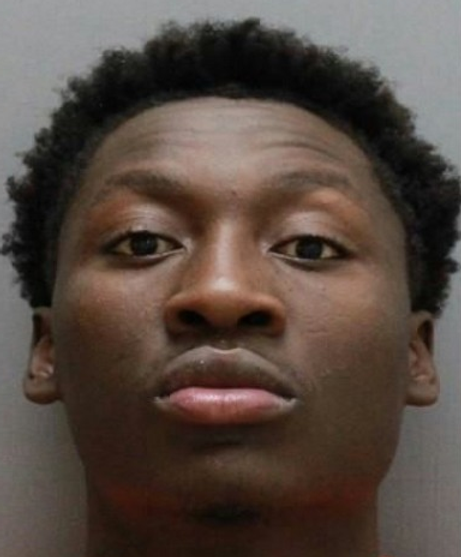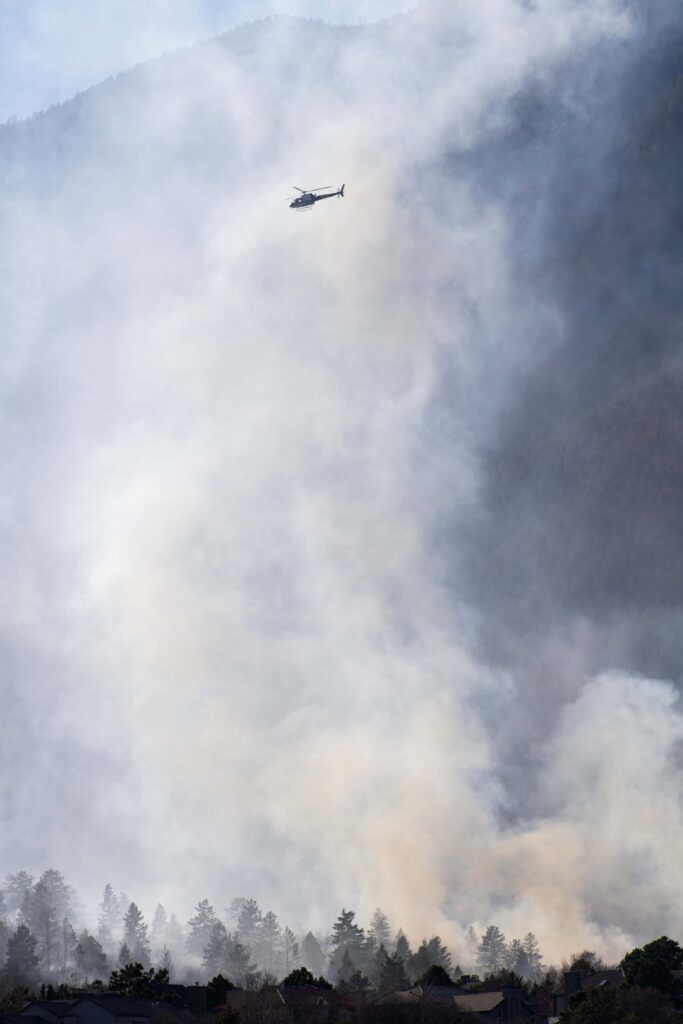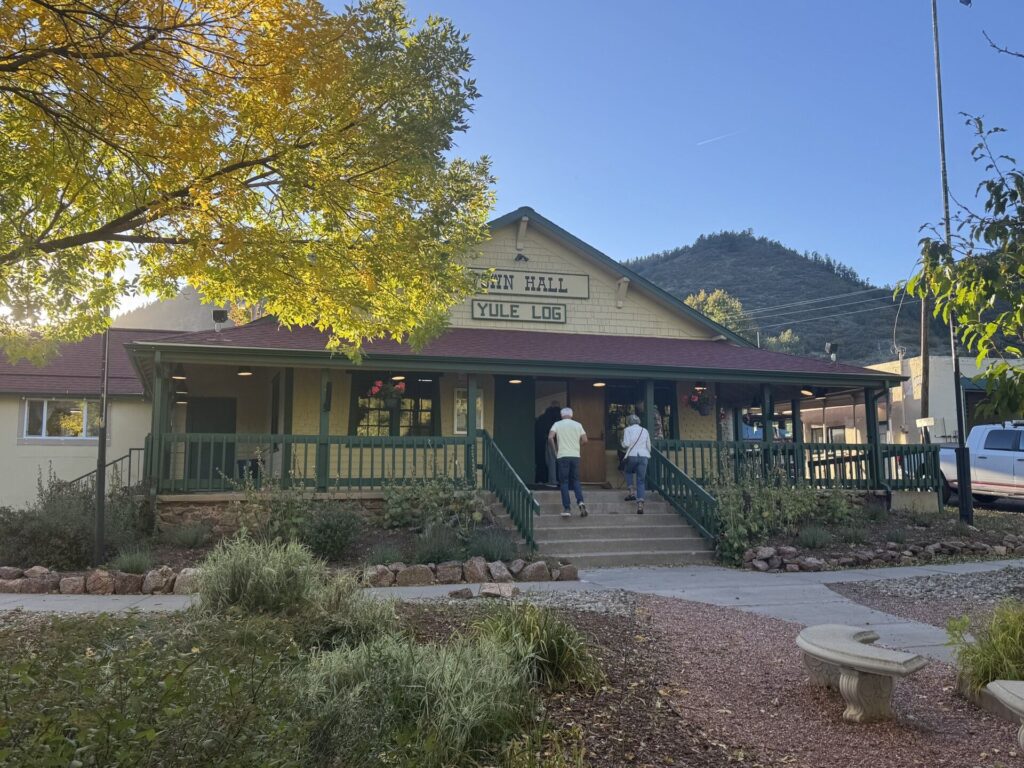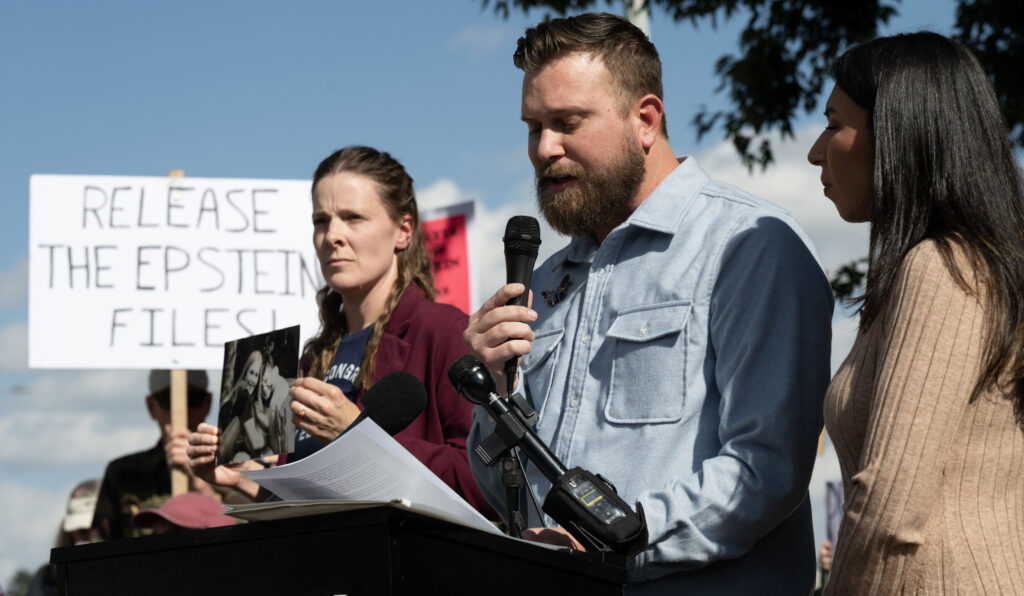Denver native’s fight against antisemitism leads to meeting with Netanyahu in Israel
Even at a young age, Talia Boyle knew what antisemitism looked like.
“In middle school, people called me derogatory names, drew Swastikas in my notebook, and even threw pennies at me,” she told The Denver Gazette recently.
In high school, students vandalized her campus with antisemitic memes, the Denver native said.
“I just remember having this hopeless and scared feeling,” said Boyle, now a junior at the University of Arizona.

Talia Boyle, a junior at the University of Arizona, plans to host a webinar for incoming college students on “how to be Jewish on a college campus.” (COURTESY: Talia Boyle)
Boyle took that sense of hopelessness and fear and turned into a fuel — the kind that would lead her to visit Israel and meet Prime Minister Benjamin Netanyahu in person just a few weeks ago.
In that meeting, which took place as the war between Hamas and Israel raged, Boyle shared with Netanyahu a painful antisemitic episode — not because of what happened per se.
But because of where it came from.
“Someone I believed to be my friend at the University of Arizona messaged me and told me that Hitler did not finish the job, and now Hamas is doing it for him,” Boyle told Netanyahu.
Netanyahu later shared that interaction on his office’s account on X, the social media platform.
ADL: Wave of antisemitism hits college campuses
What Boyle experienced in Arizona is not unique.
A longitudinal survey from the ADL Center for Antisemitism Research, Hillel International and College Pulse before and after the Hamas attack on Oct. 7 said Jewish students are experiencing a wave of antisemitism and non-Jewish students are “much less likely to see it.”
The survey said that 73% of Jewish college students experienced or witnessed some form of antisemitism since the start of the 2023-2024 school year; that the rate of Jewish students who felt comfortable telling others about their identity dropped to 39% from 64%; and that less than half physically feel safe on campus.
In Colorado, that unease led a group of Jewish students at the University of Denver to form a “first responder” squad back in May to protect themselves from Pro-Palestinian protests who, they believe, had become increasingly threatening.
Pro-Palestinian activists had pushed back at that characterization, insisting that Jewish Americans don’t hold a monolithic view, pointing to Jewish Voices for Peace as an ally to their cause. The group has been calling for a “permanent ceasefire and an end to Israel’s genocide against Gaza.”
And in an email, Jonathan Kuhne, one of the activists arrested at the Auraria Campus back in April, said the protests had been “completely peaceful, nothing was being disrupted, no one was being disturbed and there were no safety issues.”
In an interview with The Denver Gazette, Boyle said that antisemitism came in the form of friends who had effectively turned her back on her.
“I never experienced antisemitism at college until this year, when friends of mine who supported me as a Jew decided not to anymore,” she said.
Boyle said she was one of a few Jewish students in middle school and high school, and that experience made her very conscious of her Jewish identity.
“For me, growing up in a Jewish household meant growing up with a Jewish mentality of standing up for myself and standing up for my people,” she said.
And she did exactly that.
Boyle collaborated with the Jewish Student Connection and the Colorado branch of the Anti-Defamation League to talk about the Jewish culture and antisemitism with high school students. Now a decade old, Jewish Student Connection seeks to help Colorado teenagers explore Jewish and Israeli culture, as well as Jewish identity and community.
A trip to Israel and a meeting with Netanyahu

Talia Boyle (right) met and spoke with Israeli Prime Minister Netanyahu, Israeli President Isaac Herzog, the Minister of Diaspora Affairs, and the Shas Party. (COURTESY: Talia Boyle)
Boyle brought that activism to college, where she has been vocal against antisemitism.
She attended a summit in New Jersey and delivered a speech about antisemitism on her campus.
“Antisemitism is not political. It’s hate,” she said. “We need resources who can help us create programs and extra safety for Jewish students.”
An organization called Olami — a group that calls itself a “modern Jewish tribe” and which has chapters in more than two dozen countries — invited her to go on a trip to Israel. Boyle had connected with Olami in her second year of college.
A few weeks ago, Boyle and several American Jewish students found themselves at a table opposite Netanyahu.
They talked about antisemitism.
“Now, we’re also facing a world struggle to fight the slander against the Jewish people and Jewish state,” the prime minister said. “The most important thing is you have to fight.”
“And how do you fight lies? With the truth,” he said.
Toward the end of the video clip, which Netanyahu’s office posted on social media, Boyle told the prime minister about her friend, who now hopes Hamas would “finish the job.”
“Through our stories and speeches, the Israeli government saw the extent to which antisemitism exists in the United States,” Boyle told The Denver Gazette.
Boyle said she was nervous about coming to Israel during wartime but ended up feeling overwhelmed with the support she received abroad.
“People from Israel told us that they were praying for us and for Jewish students,” she said.
Boyle said she had expected the wave of antisemitism after Oct. 7.
Just like in Colorado and elsewhere in the country, the pro-Palestinian protesters at the University of Arizona erected an encampment, and police officers moved in to dismantle the tents using pepper balls and rubber bullets during Talia’s final week of the semester.
Boyle said the protesters shouted a derogatory phrase directed at Jewish people.
“People couldn’t demonstrate what they wanted to without yelling hateful speech and disrupting the college campus. It was frightening,” Boyle said.
“When you hear people screaming hateful words at Jewish students, think of me. When you see the news about Jewish people, think of me. Before you even post something, think of me,” she added.
Today, Boyle serves as president of Arizona TAMID, which connects students to startups in Israel.
She is also working on designing a mentorship program, in which college students communicate with people from Israel once a week and then travel to the country.
For now, her goals are more immediate. She plans to host a webinar for incoming college freshmen on “how to be Jewish on a college campus.”











